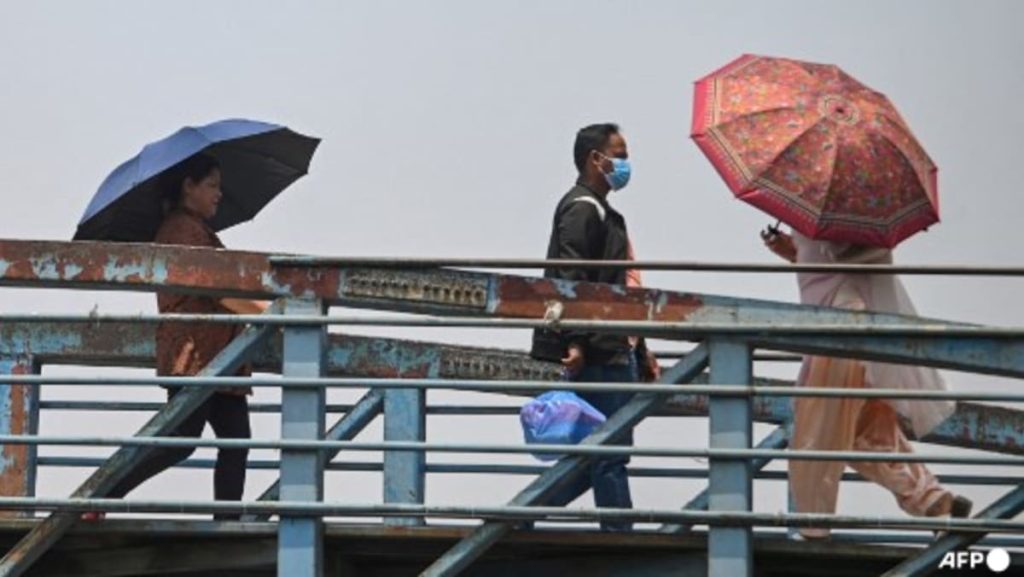d severity have increased this year due to unusually hot and dry conditions. The fire near Kathmandu has destroyed hundreds of hectares of forest, threatening nearby villages and prompting efforts to contain the blaze. Firefighters have been working tirelessly to extinguish the flames, with the help of local residents who have also joined in the firefighting efforts.
The wildfire outbreak in Nepal is just one of several that have occurred around the world in recent months, highlighting the growing impact of climate change on natural disasters. The fires in Nepal are believed to have been exacerbated by a heatwave that has gripped the region, causing temperatures to soar and creating ideal conditions for wildfires to spread. Authorities have warned that climate change is making wildfire seasons longer and more intense, posing a significant threat to both human life and the environment.
Efforts to combat the wildfire in Nepal have been hampered by a lack of resources and equipment, with firefighters struggling to contain the flames in rugged terrain and remote areas. The government has called for international assistance to help tackle the crisis, as the scale of the wildfire has overwhelmed local firefighting capabilities. Inadequate infrastructure and limited access to firefighting equipment have further hindered the response to the wildfire, underscoring the need for greater investment in disaster preparedness and response capabilities.
The impact of the wildfire on local communities has been devastating, with thousands of people forced to evacuate their homes and seek shelter in safer areas. The loss of forest cover due to the fire has also raised concerns about the long-term ecological damage and potential for landslides in the affected areas. The destruction of wildlife habitats and vegetation has further exacerbated the environmental impact of the wildfire, with long-term consequences for biodiversity and ecosystem health.
As the wildfire continues to rage on the outskirts of Kathmandu, authorities are working to mobilize resources and personnel to contain the blaze and prevent further damage. International aid agencies and neighboring countries have offered support in the form of firefighting equipment, personnel, and financial assistance to help address the crisis. Efforts to raise awareness about the impacts of climate change and the need for sustainable environmental practices are also underway, in an effort to prevent future wildfire outbreaks and protect vulnerable communities from the effects of climate-related disasters.
The wildfire in Nepal serves as a stark reminder of the urgent need to address the growing threat of climate change and its impact on natural disasters. As temperatures continue to rise and extreme weather events become more frequent, the risk of wildfires and other environmental emergencies will only increase. Governments, communities, and international organizations must work together to improve disaster preparedness, mitigate the effects of climate change, and build resilience in the face of environmental challenges. Only through collective action and a commitment to sustainable development can we hope to prevent future wildfires and protect our planet for future generations.


